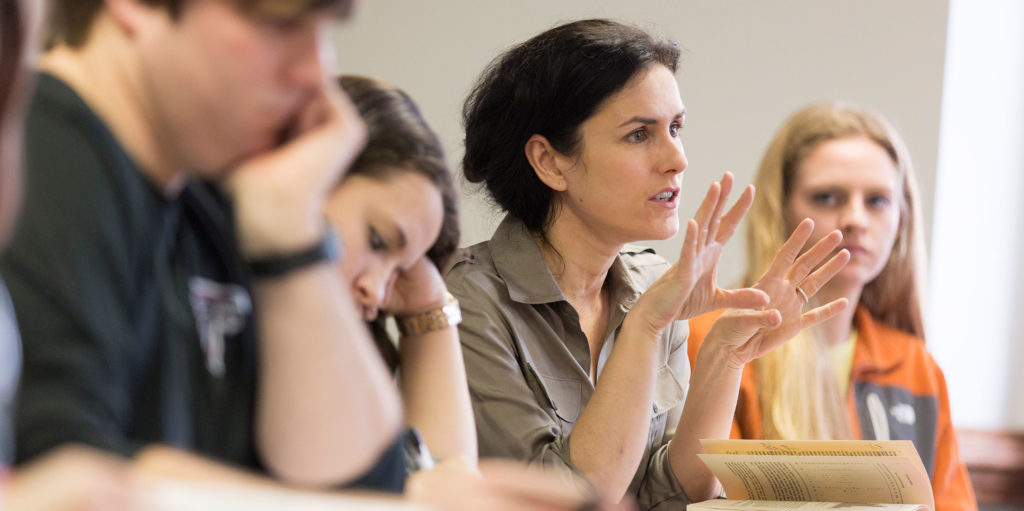Susan Mattern, Distinguished Research Professor in the history department, enjoys focusing on big ideas and patterns across cultures.
Where did you earn degrees and what are your current responsibilities at UGA?
My Ph.D. is from Yale University, 1995. I am a Distinguished Research Professor in the history department, part of the Franklin College of Arts and Sciences. I teach undergraduates and graduate students, do research, write books, serve on committees, give talks and do other professional service, such as reviewing people for tenure or reviewing books for publication.
When did you come to UGA and what brought you here?
I came to UGA in 1998. At the time I was working at a small liberal arts college, but I wanted to work at a public research university. There were only two tenure-track jobs at research universities in my field that year. I was very excited to be hired by UGA.
What are your favorite courses and why?
I like to teach world history because to do that, I have to be learning constantly. I spent much of my early career doing very detailed research on sometimes obscure subjects, and it is fun to focus on big ideas and patterns across cultures. It is very easy to be wrong however, and I try to mix it up with projects that require more depth and keep my language skills engaged.
What interests you about your field?
I find history since the industrial revolution pretty boring—states, societies, languages, cultures, economies all becoming more and more alike. Societies before the modern period were much more different from one another. At the same time, the changes that industrialization has brought about are so profound that it is critical to try to understand what they are and what life used to be like. As an analogy, I often have the thought that I am the last generation that will remember life before computers and before the Internet. Future generations will need to study the 20th century in order to know what the influence of the information revolution has been. It is the same with industrialization, only more so.
What are some highlights of your career at UGA?
My proudest moment was being promoted to full professor. My department had never had a female full professor before, and it is still the case that the vast majority of full professors at UGA are men. I was also proud when the new child care center was built at the Health Sciences Campus. For many years UGA faculty and staff had been asking for this, and I was very involved in trying to make that happen.
How does your research or scholarship inspire your teaching, and vice versa?
I get a lot of good ideas when preparing for class. No matter how many times I’ve read something, I often notice something new when I’m re-reading the assignment. I try to change the syllabus around from year to year so that I have to think about different kinds of problems.
Describe your ideal student.
My favorite students are nontraditional students—students who have been in the military or the workforce and have come back to get their degree. Any student can benefit from any class if they are serious and want to learn, and these are the most serious, passionate students. They are a pleasure to teach, and even one nontraditional student can raise the level of a whole class.
Beyond the UGA campus, I like to…
I like to climb rocks whenever I can, though it is getting harder and harder to get away. I love to dance, garden, practice yoga and do lots of other things, but I don’t remotely have enough time for everything I want to do. Work takes up almost all my time, of course. I try to work in the living room so I can at least see my kids and maybe they will recognize me on the street.
Favorite book/movie (and why)?
My favorite movie is “2001: A Space Odyssey,” because it’s encouraging that something almost as old as I am can get better every time I see it. The last time I watched it, because I’ve been researching a lot about human evolution lately, I realized how carefully the opening scene reflected 1960s theories of human origins. It was really cutting-edge at the time.
(Originally published Jan. 10, 2016)
